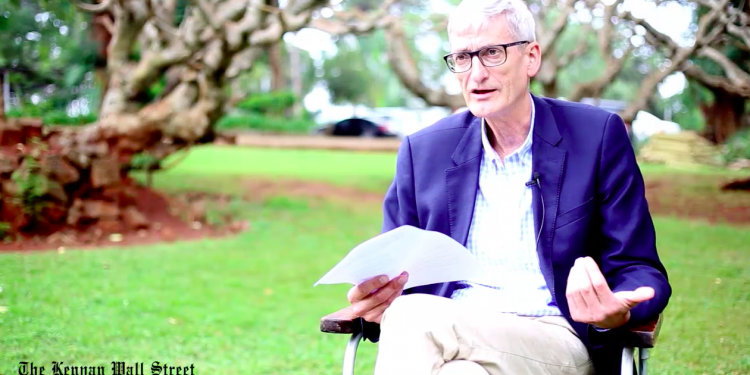The Tatu City mega project under development on 5,000 acres of land in Ruiru, Kiambu County is pioneering Kenya’s first sustainable development where people can work and relax in the same place where they live.
Urban land developer Rendeavour is the firm behind the project that will cater for 150,000 people. The upcoming city will comprise of residential, commercial, education, industrial, recreation, public utilities, social amenities, and transportation land uses. To put another way, Tatu will live up to its city status unlike other projects in the country that mainly concentrate on residential and commercial land uses.
Rendeavour country lead Nick Langford explained how the project works:
“We do not do all the developing ourselves, we provide the platform for other developments to purchase land to build, develop, and deliver the vision of what Tatu City is providing for the Kenyan market.”
The firm is also working on projects in Ghana, Nigeria, and the Democratic Republic of Congo, with the Kenyan project being the most advanced.
Why Should Kenyans Want to Live and Work in Tatu City?
Unlike other mixed-use development projects in the country, Tatu City is keen on creating sustainable communities, integrating the cultural aspect of the area into the development, empowering communities, and providing affordable housing.
“We are not just here to provide elite residential developments like some of the other projects you find in Nairobi. Most of the projects that we will be providing in terms of residences are in the affordable range between Sh3 million and Sh6 million,” Langford said.
“There will be some exclusive parts of the project but if we are building a city for 150,000, most of the demand will come in the price bracket of below Sh10 million and that is what we are focusing on.”

The project will also preserve a Mugumo tree that sits inside the development, thereby, promoting the cultural aspect of the area. The Mugumo tree was a favourite stopover for Mzee Jomo Kenyatta en route Gatundu. The tree has also acted as a meeting place for Kikuyu elders over the years.
Tatu City is also unique because it will feature boulevards and pedestrian walkways designed to ensure that people can walk or cycle to work, school, and recreational areas, a factor that will discourage sedentary lifestyles.
“It is very inspiring to be able to come to work and try to provide a different and improved environment for Kenyans to live in,” Langford asserted. “We want to create a friendly, safe, and secure place where people really aspire to live and I hope we will be able to provide that over the next ten years or so.”
Langford also observed that there is proof that Kenyans are ready for Tatu City because of the high demand for industries to locate in the area. For instance, companies such as Dormans, Africa Logistics Properties, and Friendship Group have already set up establishments in Tatu City’s industrial park.
Some of the other factors demonstrating demand are the oversubscribed Nova Pioneer Schools that are already open and the lifestyle residential apartments that are under construction.
Tatu City is also empowering the local community through projects such as providing lunches to schools, supporting local football teams, and establishing a training academy for Kenyans in the construction field.
Trends in the Real Estate Market
According to Langford, trends in the real estate market are oriented towards technology particularly in e-commerce.
“The development of e-commerce will hasten the decline in traditional retail and shopping centres and increase the demand for real estate such as logistics and warehousing as consumers buy online. That is happening now globally and it will happen here in Kenya,” he said.
In addition, Langford said investors are moving from traditional real estate investments like retail and offices to asset classes such as education. This is because investors are keen to obtain assets with a long-term stability, he added.
Therefore, the team developing Tatu City is considering the changes in the market so that they can deliver a city that is “commensurate with the market demand for consumers over the next 20 to 30 years.”
The Shareholders’ Dispute
In July this year, ex-central bank governor Nahashon Nyaga, Bidco CEO Vimal Shah, and businessman Stephen Mwagiru were fined Sh1.7 billion by a London arbitration court for falsely claiming to have paid Socfinaf Sh2 billion, the former owner of 10,000 acres Rendeavour obtained.
Commenting on the shareholders’ dispute, Langford noted: “There are people who inevitably want to challenge us and what we are trying to do. We have to be very strong in our ability to defend our legal status and rights and also to benefit the local community which is what we are focusing on.”
Despite this challenge, Tatu City is portraying a good example of what sustainable developments should be like, something that counties can emulate in their spatial plans. The project has also indicated that Kenyans’ demand for better living places is increasing as congestion, insecurity, and general poor planning in urban areas remain unresolved.




